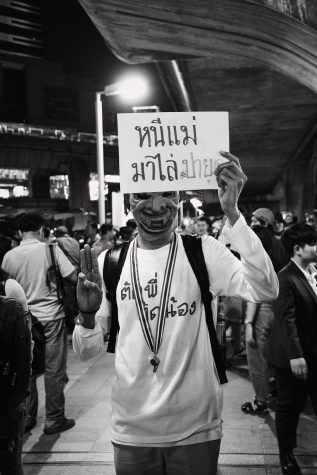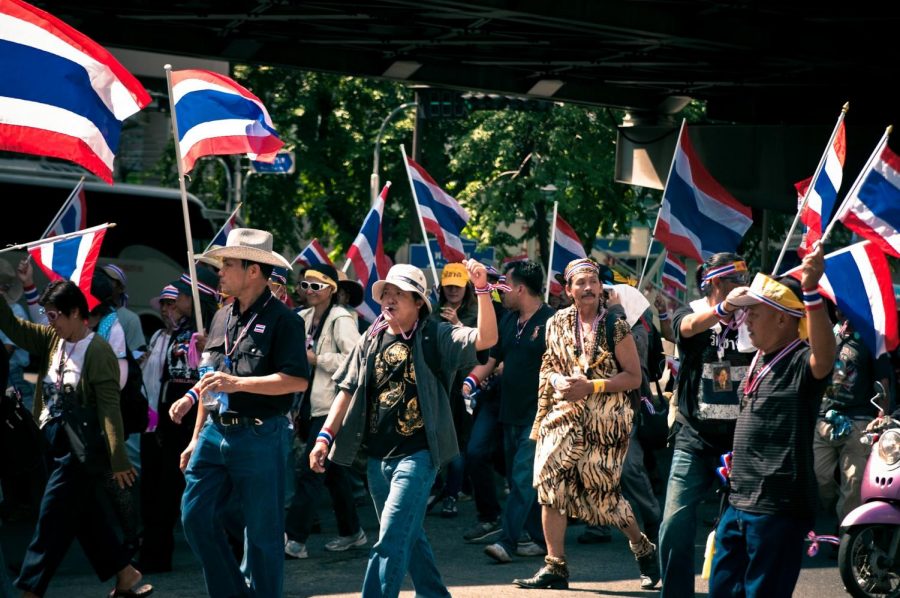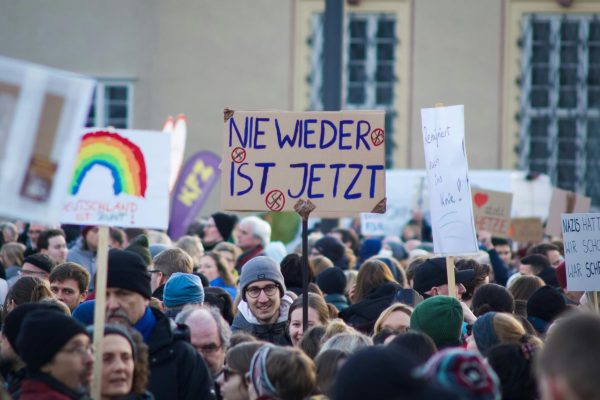A Youth Movement: Pro-democracy Protests in Thailand
In recent months, headlines across all platforms have been flooded with reports of escalating tensions and instability in countries all over the world. One situation which has reared its ugly head in recent months while receiving relatively low amounts of mainstream coverage is that of Thailand’s current political climate. The South-East Asian country of Thailand is known to be something akin to a tropical paradise – boasting tropical beaches, a unique culture, cuisine, and heritage. While these attributes may cast this country in an idyllic light, citizens in Thailand face the turbulent realities of the Thai political system.
In order to understand the recent developments involved with the pro-democracy movement, one must gain a brief historical context of the Thai government. Through a military coup on the 22nd of May in 2014, the Thai people were forced to live under the control of the junta government, led by the then military leader Prayut Chan-o-cha (sometimes referred to as Prayuth Chan-ocha). Over a period of six years, this military dictatorship exercised indisputable state power to silence and control the Thai people, violating fundamental human rights.
March of 2019 marked the first elections since the junta government seized power. However, these elections were structurally rigged by the Thai military to entrench its political role, ensuring that Prayut Chan-o-cha would be reinstalled as prime minister. The military went as far as to dissolve the main opposition party, take control of the national election commission, levy false criminal charges against dissidents and opposing politicians, and place generals and officers into the Senate, giving them the power to shape Thai policy, regardless of election results. Under the Prayut administration, Thailand has suffered years of human rights violations, most notably the censorship of press, public discussion, and activists. Freedom of speech and expression has been stolen from the people by the Junta by cracking down on dissent, actively enforcing media censorship, and banning public gatherings.
The ongoing protests against the current government were triggered by the dissolution of the Future Forward Party (FFP) in late February. Established in 2018, the FFP was designed to be a radical platform appealing in particular to the youth, promising sweeping reforms, especially to the military. Thus, the FFP garnered wide support, giving it a sizable voice in the first post-coup parliament. This dissolution came about as a result of a $6m loan from its founder Thanathorn Juangroongruangkit, one of the fiercest critics of the prime minister. This loan was ruled to be illegal, leading the court to subsequently dissolve the party and ban 16 of its leaders from politics for a 10-year period.
This event sparked multiple student-led protests, calling for radical reforms to the government. These people had three main demands: a dissolution of the parliament, an end to the government threatening civil liberty, and a new constitution to be drafted. Furthermore, a 10-point manifesto calling for reforms of the monarchy was introduced as an initial step towards a more democratic government. This manifesto was introduced to the public sphere by 21-year-old university student Panusaya Sithijirawattanakul in August of 2020, highlighting the roles of youth-activists in this movement.
Officially, Thailand is a constitutional monarchy. However, decades of political turmoil and uncertainty have resulted in the monarchy’s tremendous influence. Furthermore, the sovereign is shielded by some of the world’s harshest royal defamation laws. These Lèse majesté (a French term that means “to do wrong to majesty”) laws are a legal tool put in place to repress and criminalize insult and dissent against the monarchy, thus cementing the monarchy’s power.
The aforementioned protests, initially held primarily across university campuses, have gained enormous traction, drawing over 50,000 attendees in September (according to organizers). The protesters specifically highlighted four main laws which required immediate attention for amendments and reevaluation. First, the aforementioned Lèse majesté law (Section 112), as well as section 116 of the criminal code, were hit with resistance. Section 116 punishes anyone who publicly expresses criticism or honest intention to promote or encourage the change of government using forceful means, disorder among citizens causing turbulence, or breaking of the law. Furthermore, the computer crimes act and the public assembly act, which criminalize the expression of opposing opinions online and public gatherings respectively, were also under fire.
While the government has yet to take significantly harsh actions in response to these activists, many have been intimidated and even briefly jailed for their actions in continuing to peacefully speak out against the government and mobilize action. The silencing of critics of the government is a fundamental violation of supposed inalienable rights, which further spurred on the youth-led protests. In the face of potential harm, these individuals refuse to back down and cower, demonstrating an example of fierce initiative and dedication to a cause, driving a powerful movement across the country.
The energy presented by the youth is unmatched, with these largely student-protesters utilizing new and unique ways to protest against their repressive government. The harnessing of social media platforms to quickly spread information, organize flash-mob style protests, and rally support has been a commonly applied strategy in recent years. However, the Thai protests also used cultural references as a way to keep the movement evolving and maintain engagement and participation. The three-fingered salute, popularized by the Hunger Games franchise became a gesture used by protesters as a symbol of defiance against an authoritarian state.

Themed protest days where demonstrators dressed up as specific characters (for example, a Harry Potter-themed protest was carried out), and pop-culture symbols such as the Japanese hamster-character Hamtaro, were used as symbols of the movement. The Hamtaro theme song was even adapted to suit the movement, with the lyrics “the most delicious food is sunflower seeds” changed to “the most delicious food is taxpayers’ money.” Years of living in a repressive environment did not always allow for freedom of expression, and thus the Thai youth has exhibited creative and elusive methods to get around modes of censorship, and express unity. While some observers may criticize these tactics for their “immature” nature which possibly draws away from the legitimacy of the movement, these demonstrators were prepared to use any means necessary and possible, given the repressive situation, to communicate messages and rally support.
As the world keeps its attention on the numerous social movements for civil and human rights, such as those in Hong Kong, the USA, and India, one must keep their eyes on Thailand as well. This movement makes evident the power held by the youth to affect change and underlines the importance of youth leadership and involvement in politics and current affairs in maintaining a progressive and functional society.
As this is an ongoing movement, one can only guess how it will end and what changes, if any, will be put into place. However, as these people continue to risk their safety for their country, we as global citizens can support with any means available, and watch from the sidelines as a new chapter in Thai history is written into being.







